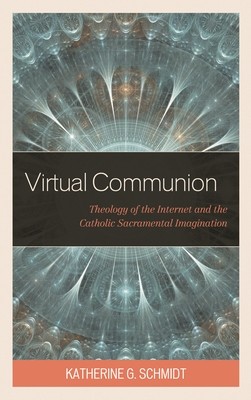
- We will send in 10–14 business days.
- Author: Katherine G Schmidt
- Publisher: FORTRESS ACADEMIC
- ISBN-10: 1978701640
- ISBN-13: 9781978701649
- Format: 15.2 x 22.9 x 1.1 cm, softcover
- Language: English
- SAVE -10% with code: EXTRA
Reviews
Description
Virtual Communion: Theology of the Internet and the Catholic Sacramental Imagination provides a theological account of the internet from a Catholic perspective. It engages digital culture by providing a context for media and mediation within the Catholic tradition, specifically focusing on the ecclesiology and sacramentality of the church. Katherine G. Schmidt argues that the Catholic imagination is inherently consonant with the idea of the "virtual," understood as the creative space between presence and absence, bringing the fields of media studies, internet studies, sociology, history, and theology together in order to give a theological account of the social realities of American Catholicism in light of digital culture. Overall, Schmidt argues that the social possibilities of the internet afford the church great opportunity for building a social context that allows the living out of Eucharistic logic learned in properly liturgical moments.
EXTRA 10 % discount with code: EXTRA
The promotion ends in 19d.21:07:04
The discount code is valid when purchasing from 10 €. Discounts do not stack.
- Author: Katherine G Schmidt
- Publisher: FORTRESS ACADEMIC
- ISBN-10: 1978701640
- ISBN-13: 9781978701649
- Format: 15.2 x 22.9 x 1.1 cm, softcover
- Language: English English
Virtual Communion: Theology of the Internet and the Catholic Sacramental Imagination provides a theological account of the internet from a Catholic perspective. It engages digital culture by providing a context for media and mediation within the Catholic tradition, specifically focusing on the ecclesiology and sacramentality of the church. Katherine G. Schmidt argues that the Catholic imagination is inherently consonant with the idea of the "virtual," understood as the creative space between presence and absence, bringing the fields of media studies, internet studies, sociology, history, and theology together in order to give a theological account of the social realities of American Catholicism in light of digital culture. Overall, Schmidt argues that the social possibilities of the internet afford the church great opportunity for building a social context that allows the living out of Eucharistic logic learned in properly liturgical moments.


Reviews